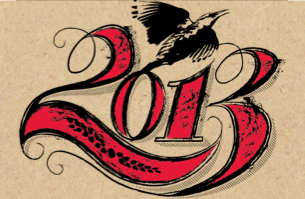
UNL and Lincoln have seen an influx of hundreds of scholars this week as UNL’s Center for Digital Research in the Humanities has played host to the Digital Humanities 2013 conference.
The gathering, which is organized by the Alliance of Digital Humanities Organizations, began Tuesday with a keynote address from David Ferriero, the archivist of the United States, and wraps up today. Events have been held in several campus buildings and at Embassy Suites Lincoln.
The annual conference is considered the most distinguished in the field of digital humanities and draws researchers from around the world. More than 20 countries are represented at this year’s conference.
"This is a conference that has been held in places like the University of Hamburg in Germany and Stanford University," said Katherine Walter, co-director of the Center for Digital Research in the Humanities and professor in University Libraries.
"To be selected as host recognizes both the importance of digital humanities at UNL and the tremendous amount of support digital research in the humanities has received from this administration," said Walter, whose efforts and work in the last two years we crucial in UNL securing and staging the conference.
Ken Price, Hillegas University Professor of American Literature and co-director of the CDRH, said the UNL center went up against several other prestigious universities to host this year's meeting.
Price said hosting the conference further cements UNL’s reputation as a leader in the field. Over the past decade, UNL has grown its digital humanities research through several measures, including hiring more faculty and expanding its digital archives.
“Digital humanities has been made a priority here,” Price said. “Given the investment we’ve made, this is one way to put our stake in the ground and make the world aware of what we’re doing here.”
The conference has been a resounding success, Price said, and organizers have “received endless praise.”
While Lincoln isn’t a major city such as San Francisco or Hamburg, Germany -- where past conferences have been held -- organizers have been happy with the number of researchers attending the conference.
“We’ve met and most likely exceeded past conference numbers, and I think that’s rather remarkable,” Price said.
Matthew Wilkins, a conference participant and assistant professor of English at Notre Dame University, said he appreciates the value of having the conference in Nebraska. The location is easy for U.S. travelers and the city lends itself to making the conference the focus for attendees.
“People are here for the conference,” Wilkins said. “There is a physical concentration here that you don’t get everywhere else.”
He lauded UNL’s digital humanities faculty as “one of, if not the best, in the world,” which makes for an even better conference.
“The quality of a conference is really dependent on the quality of the people running it,” Wilkins said.
Wilkins has taken advantage of campus and downtown Lincoln to eat or grab a cup of coffee with fellow conference participants and have “happy interactions that wouldn’t happen otherwise.”
That’s really the goal of the conference, Wilkins, Walter and Price said: It acts as a catalyst for discussion in the field of digital humanities, which is something to which many of the best minds in the field don’t have daily access.
“I really have two goals when I attend this conference," Wilkins said. "To receive feedback when presenting and to hear about what other people are doing right now.”
Price said the gathering is especially fruitful for UNL because the host site is allowed to help choose the keynote presenters. Conference organizers used Price’s and Walter’s suggestions.
"Many of the people coming to the conference are members of the boards of the different organizations in the Alliance of Digital Humanities," Walter said. "They are the world's leaders in digital humanities research."
Besides Ferriero, other keynotes speakers are Willard McCarty, professor at King's College London and the University of Western Sydney, and a fellow of the Royal Anthropological Institute; and Isabel Galina, a researcher at the National University of Mexico. McCarty delivered the Roberto Busa Prize Lecture on Wednesday.
Galina gives the conference's closing lecture at 3:30 p.m. today; she has been involved in numerous initiatives related to institutional repositories, digitization projects, electronic publishing and the use and visibility of digital resources at the National University of Mexico. Her lecture will be live-streamed at http://netnebraska.org/stream/library.
The Alliance of Digital Humanities is an organization of six international groups -- the European Association for Digital Humanities, Association for Computers and the Humanities, Canadian Society for Digital Humanities, centerNet, Australasian Association for Digital Humanities and the Japanese Association for Digital Humanities.
-- Deann Gayman, University Communications